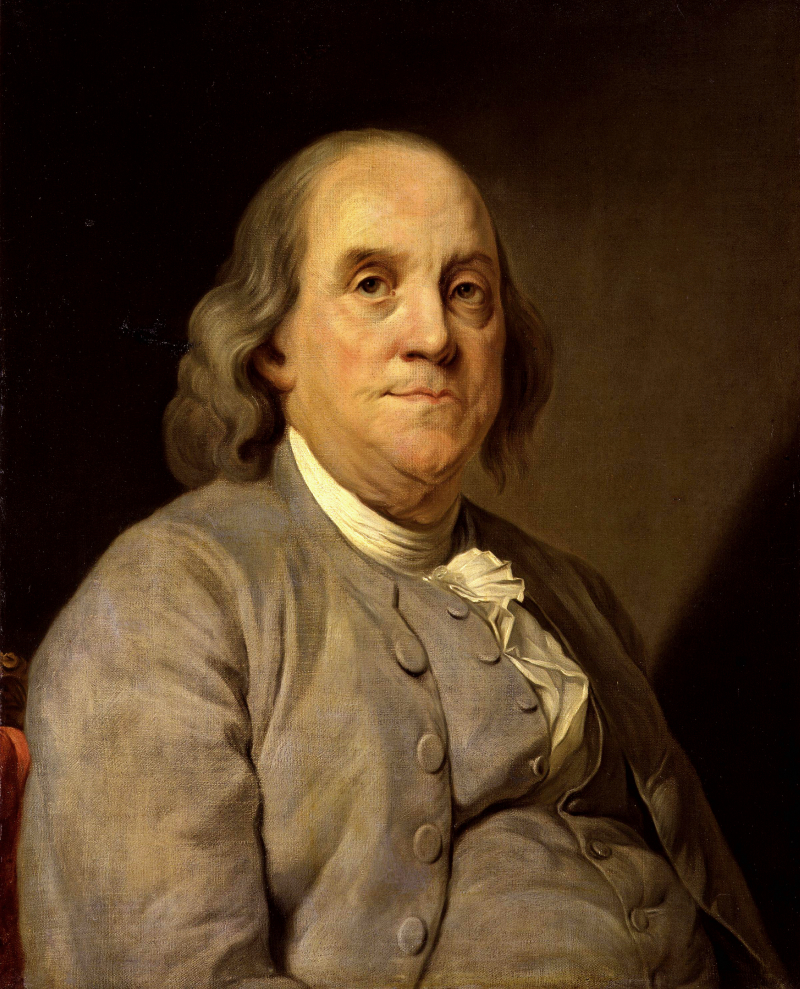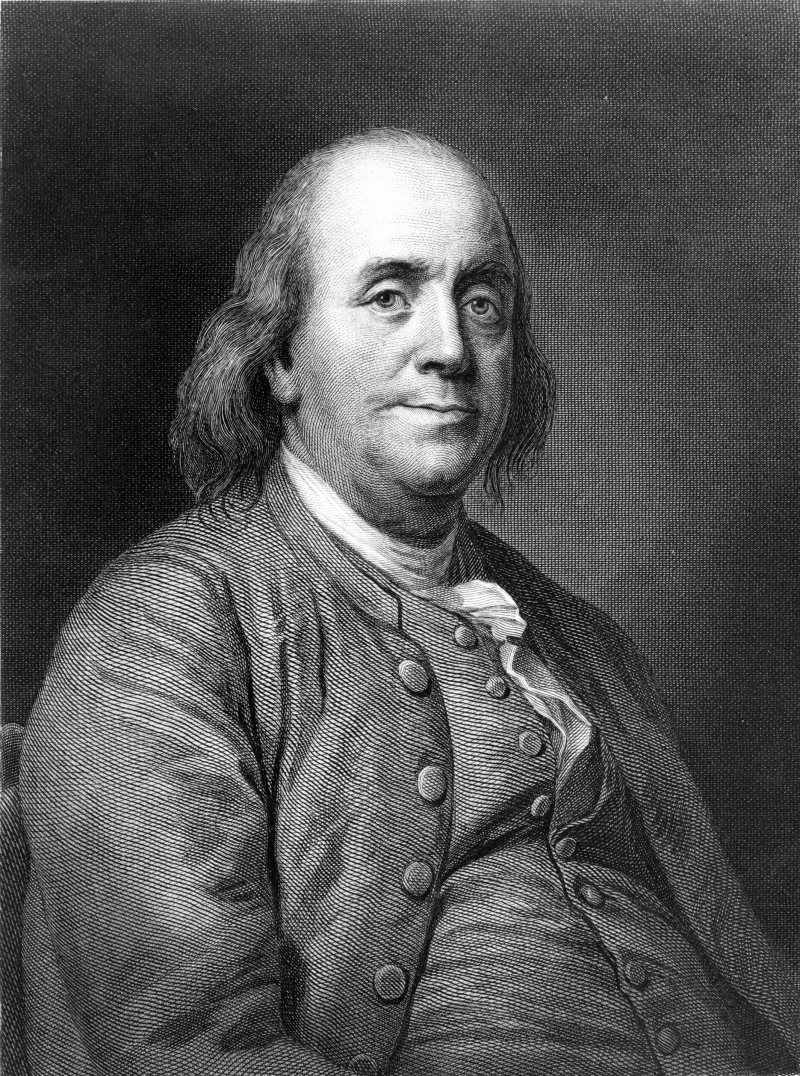Benjamin Franklin
Benjamin Franklin FRS FRSA FRSE (January 17, 1706 - April 17, 1790) was a writer, scientist, inventor, statesman, diplomat, printer, publisher, and political philosopher. Franklin was one of the United States' Founding Fathers, a drafter and signer of the United States Declaration of Independence, and the first Postmaster General of the United States.
After serving as Philadelphia postmaster for many years, Benjamin Franklin was promoted to deputy postmaster-general for the British colonies on August 10, 1753, allowing him to establish the first national communications network. He was involved in local, colonial, and state politics, as well as national and international affairs. He was governor of Pennsylvania from 1785 to 1788. He initially owned and traded slaves, but by the late 1750s, he had become an abolitionist and advocated for education and the integration of African Americans into American society.
Franklin's life and legacy of scientific and political achievement, as well as his status as one of America's most influential Founding Fathers, have been honored more than two centuries after his death on the $100 bill, warships, and the names of many towns, counties, educational institutions, and corporations, as well as numerous cultural references and an Oval Office portrait. Franklin wrote or received over 30,000 letters and other documents during his lifetime, which were published as The Papers of Benjamin Franklin by the American Philosophical Society and Yale University.












